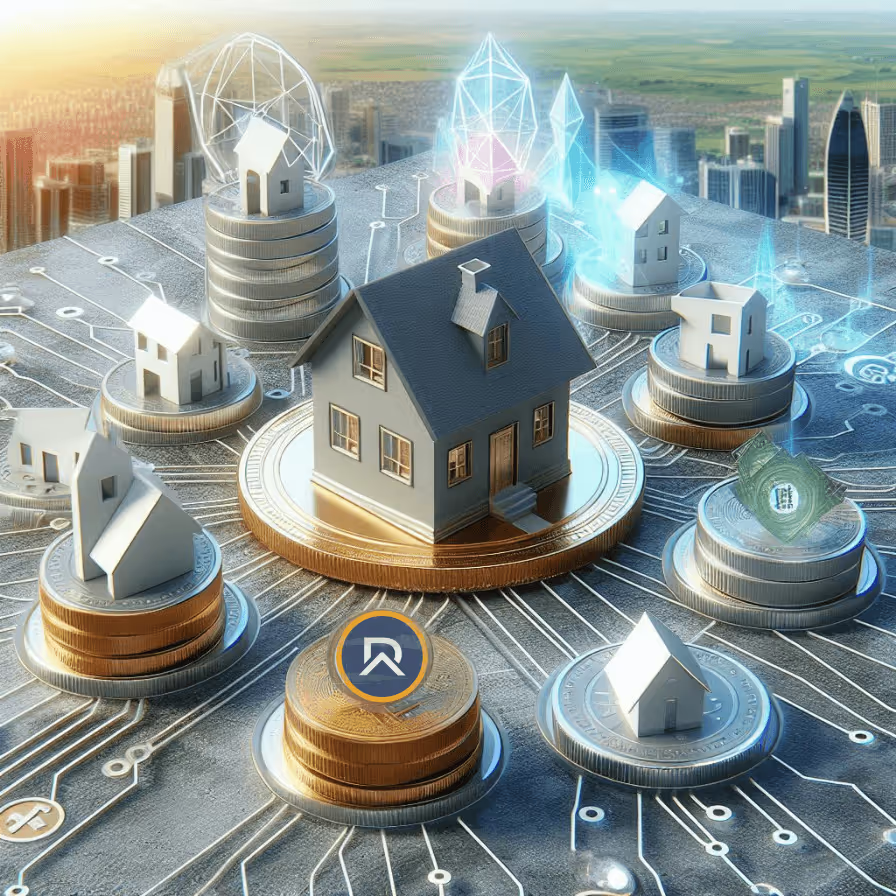In today's world, technology is advancing by leaps and bounds, and with it, new concepts emerge that may seem complex to those who are not familiar with them. “Blockchain” and “Tokenization” are two of these terms that often cause confusion.
For years, the conversation about blockchain has been saturated by its technical nature and deep understanding of cryptography, Tokenization, hashes and the famous blockchain. This approach has obscured general understanding and, in addition to the technical limitations that existed until a year ago, has delayed its adoption on a large scale. However, I wonder: is it really necessary to know about internal combustion to drive a car? The answer is no. The same thing happens with blockchain. It is crucial, then, to adopt a new perspective, thinking of it more as a means and not as a technical enigma.
The tokenization of money on the blockchain
In simple terms, tokenization involves creating a digital representation of an asset on the blockchain. For example, real estate can be divided into multiple digital tokens, each representing a fraction of the property. These tokens can be easily bought, sold and transferred, allowing for greater liquidity and accessibility.
In the cryptocurrency landscape, this digitization process is known as”Tokenization”, and refers to the conversion of a physical asset into a digital token that is registered on the blockchain. This digital token acts as a representation of the real asset, maintaining its value in a form that can be easily and securely traded or transferred electronically.
In this way, tokenization introduces us to a new world, where digital goods can find attributes and qualities that they could not have in their physical form. The revolution that comes with this technology is the transformative and enriching capacity that extends from buying and selling these tokens in a secure and at the same time easy way, allowing greater liquidity and accessibility.
Without a doubt, it is crucial to adopt this trend to obtain new perspectives, it operates in different contexts and characteristics and only to stay and think of it as a means and not as a technical enigma that was traditionally out of reach before.
The role of blockchain in tokenization
Without this powerful tool, the revolution and transformation of moving an asset from the real world to the digital one could not have been carried out. Thanks to the blockchain, also known as blockchain, is a distributed ledger technology that allows information to be stored in a secure and transparent manner. It works like a digital accounting book where transactions are recorded chronologically and immutably. Each block in the chain contains information about the previous block, creating an unbreakable chain of data.
Think of blockchain as simply a tool, a software that digitizes processes by adding one more layer to the current internet. Where we can take advantage of their use for everyday tasks and make them more optimal, agile and less expensive.
Tokenization and blockchain are revolutionizing the way assets are managed and traded, offering a secure platform and a series of advantages
- Traceability:. These digital tokens that are registered on a network represent real-world assets but are now traded from anywhere in the world and without intermediaries, being able to track every movement they leave behind. This means that it leaves a record on a blockchain and can be consulted whenever you want by any user.
- Accessibility: Traditionally, investing in assets such as real estate or art required a significant amount of capital. With tokenization, assets can be divided into small fractions, allowing investors to buy only part of the asset. This democratizes investments and allows more people to participate in markets that were previously inaccessible.
- Transparency: it allows all transactions to be traced and to have a record of what has happened to a property with public access to the entire world, its information being immutable, reducing the possibility of fraud and increasing trust in the system. This transparency is especially valuable in sectors where trust is crucial, such as finance and the supply chain.
- Security: Provides an unprecedented level of security by using cryptography to protect data and by distributing information across a decentralized network.
- Low-cost transactions: reduces up to 90% compared to traditional methods, reducing costs associated with transactions and accelerating processing times.
- Efficiency: reduces the need for intermediaries and automates many processes through smart contracts and enforces contract terms without the need for manual intervention.
How does blockchain work?
To understand how blockchain works, we follow the example of visualizing it as an accounting book where all the inflows and outflows of money are recorded in its accounting records, in this case we are talking about a digital event book.
But instead of being an accounting book for a person or company, it is an even larger book shared by multiple actors who use this book, where each part of them is essential to be able to record each transaction. In addition, once a transaction is recorded and added to the blockchain, it cannot be altered or deleted, which guarantees the integrity of the data.
How do blockchain and tokenization impact business and the economy?
Blockchain and tokenization have the potential to revolutionize various sectors of the economy, including:
- Finances: In the financial sector, tokenization can revolutionize the way in which assets are issued and traded, making it easier to issue and trade new financial assets. By tokenizing financial securities, transaction costs can be reduced and market liquidity increased. In addition, blockchain can allow for faster and more secure settlement of transactions, improving efficiency and reducing risk.
- Supply chain: Blockchain can improve the traceability and transparency of supply chains, which can reduce fraud and improve efficiency. Companies can track products in real time and ensure the authenticity of goods, which is especially valuable in industries such as food and pharmaceuticals.
- Intellectual Property: Tokenization can facilitate the management and trading of intellectual property rights. By converting patents, copyrights, and other forms of intellectual property into digital tokens, owners can sell, license and manage these assets more efficiently. This creates new opportunities for monetization and intellectual property protection.
- Process improvement: It significantly facilitates the management of tasks such as the rental of properties, as well as the intermediation of the different actors involved in the process. It improves efficiency in these processes through the automation of tasks and the integration of relevant information. In addition, it provides a follow-up of all operations and reduces the chances of errors or misunderstandings.
- Liquidity: Tokenization significantly improves the liquidity of assets, such as in the real estate sector. This is because it transforms a physical asset, such as property, into a digital asset, more easily transferable. This innovative technology allows the total or partial sale of properties faster and easier than traditional methods.
- Automation: The incorporation of blockchain technology into our daily routine can optimize processes thanks to their automation, such as document verification and mortgage approval. This simplifies and speeds up the process, minimizing the need for intermediaries such as lawyers and brokers. Not only does it save time, but it can also reduce costs and improve efficiency by eliminating potential human errors in the verification process. In addition, automation facilitates access to information and streamlines decision-making, which can result in greater customer satisfaction.
In short, blockchain and tokenization are powerful tools that are redefining the way assets are managed and traded. Although these concepts may seem complex, you don't need to be an expert to understand their benefits. Blockchain provides a secure, transparent and efficient base for recording transactions, while tokenization democratizes access to assets, allowing more people to participate in investment opportunities. Adopting these technologies can open up new opportunities and transform entire sectors of the economy.













.avif)
